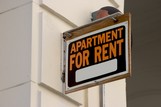Smart Landlord Strategy for Filling Vacancies
 Vacancies are on the rise, due in large part to high unemployment and an uprecedented increase in rental inventory.
Vacancies are on the rise, due in large part to high unemployment and an uprecedented increase in rental inventory.
Many landlords are holding vacant units, or are forced to rent these properties for much less than they had hoped.
One avenue for filling vacancies that landlords may not have considered is the public housing voucher program, a government subsidy given to landlords who supply rental housing to families of limited means.
Those families pay the difference between the market rent and the subsidy, and are bound by all other terms of the lease, including providing a security deposit.
What are housing choice vouchers?
The housing choice voucher program is the federal government’s major program for assisting very low-income families, the elderly, and the disabled to afford decent, safe, and sanitary housing in the private market.
Since housing assistance is provided on behalf of the family or individual, participants are able to find their own housing, including single-family homes, townhouses and apartments.The participant is free to choose any housing that meets the requirements of the program and is not limited to units located in subsidized housing projects.
Housing choice vouchers are administered locally by public housing agencies(PHAs). The PHAs receive federal funds from the U.S. Department of Housing and Urban Development (HUD) to administer the voucher program.
A family that is issued a housing voucher is responsible for finding a suitable housing unit of the family’s choice where the owner agrees to rent under the program. This unit may include the family’s present residence. Rental units must meet minimum standards of health and safety, as determined by the PHA.
Eligibility for a housing voucher is determined by the PHA.
Housing vouchers – how do they function?
The housing choice voucher program places the choice of housing in the hands of the individual family. The housing unit selected by the family must meet an acceptable level of health and safety before the PHA can approve the unit. When the voucher holder finds a unit that it wishes to occupy and reaches an agreement with the landlord over the lease terms, the PHA must inspect the dwelling and determine that the rent requested is reasonable.
Roles – the tenant, the landlord, the housing agency and HUD
Once a PHA approves an eligible family’s housing unit, the family and the landlord sign a lease and, at the same time, the landlord and the PHA sign a housing assistance payments contract that runs for the same term as the lease. This means that everyone — tenant, landlord and PHA — has obligations and responsibilities under the voucher program.Tenant’s Obligations: When a family selects a housing unit, and the PHA approves the unit and lease, the family signs a lease with the landlord for at least one year. The tenant may be required to pay a security deposit to the landlord. After the first year the landlord may initiate a new lease or allow the family to remain in the unit on a month-to-month lease.When the family is settled in a new home, the family is expected to comply with the lease and the program requirements, pay its share of rent on time, maintain the unit in good condition and notify the PHA of any changes in income or family composition.
Landlord’s Obligations: The role of the landlord in the voucher program is to provide decent, safe, and sanitary housing to a tenant at a reasonable rent. The dwelling unit must pass the program’s housing quality standards and be maintained up to those standards as long as the owner receives housing assistance payments. In addition, the landlord is expected to provide the services agreed to as part of the lease signed with the tenant and the contract signed with the PHA.
Housing Authority’s Obligations: The PHA administers the voucher program locally. The PHA provides a family with the housing assistance that enables the family to seek out suitable housing and the PHA enters into a contract with the landlord to provide housing assistance payments on behalf of the family. If the landlord fails to meet the owner’s obligations under the lease, the PHA has the right to terminate assistance payments. The PHA must reexamine the family’s income and composition at least annually and must inspect each unit at least annually to ensure that it meets minimum housing quality standards.
HUD’s Role: To cover the cost of the program, HUD provides funds to allow PHAs to make housing assistance payments on behalf of the families. HUD also pays the PHA a fee for the costs of administering the program. When additional funds become available to assist new families, HUD invites PHAs to submit applications for funds for additional housing vouchers. Applications are then reviewed and funds awarded to the selected PHAs on a competitive basis. HUD monitors PHA administration of the program to ensure program rules are properly followed.
Additional Information and other subsidy programs
For additional information about the voucher program, contact either the local PHA serving your community or the Office of Public Housing within your local HUD office.
See our feature Good News for Home Sales, Bad News for Rentals.
American Apartment Owners Association offers discounts on products and services for landlords related to your real estate investment including REAL ESTATE FORMS, tenant debt collection, tenant background checks, insurance and financing. Find out more at www.joinaaoa.org.To subscribe to our blog, click here.















 Accessibility
Accessibility